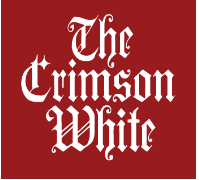There is a hole in my family. A permanent hole. Not a hole that is only felt on her birthday, or on the date of her passing or during the holidays when there is a chair missing from the table. This is an unescapable, unforgettable hole. For me, it lies in the pit of my stomach, between the feelings of butterflies and nauseousness. I feel it most on days when the sun and the breeze seem to perfectly align. These are the days I say to myself, “Oh, Lyla. I wish you were here.”
This December, my family will honor the memory of my cousin, Lyla, for the 14th time.
My brave aunt will share one of her favorite pictures of her firstborn, dressed in hospital garments two sizes too big, ready to receive her bone marrow transplant at one-and-a half years old. Her little smile hidden by her medical mouth cover, but the strength in her eyes shining through the fear. Lyla was diagnosed with a rare and aggressive form of Acute Myeloid Leukemia at 5 months old. From the beginning, we knew her chance of survival was small.
Everyday, 43 sets of parents will be told their child has cancer. Forty-three mothers and fathers, sisters and brothers and countless family members will be impacted by the strength of a disease that shows no mercy, no kindness and no rest. They will make treatment arrangements, but eventually, 12 percent of them will have to make funeral arrangements. They will work tirelessly to find relief for their child. They will stroke their daughter’s soft, patched hair from chemotherapy. They will hand-make the perfect fuzzy socks for their son’s cold toes in his hospital room.
September is Childhood Cancer Awareness month —a month of grieving, rejoicing, bearing and enduring, but most importantly, a month of believing. I believe there will be a cure for childhood cancer. I refuse to listen to the insensitive ideals of those who have never experienced this disease. Childhood cancer is not an “industry too prosperous to allow a cure,” it is not an endless money pit, it is not a lost-cause philanthropy.
But with every new statistic, it becomes easier to see the children and families affected by childhood cancer as numbers rather than as people. It becomes harder to understand where your money or efforts are going when the “Big Picture” has become entirely too big. My aunt and uncle are heavily involved with the Tom Coughlin Jay Fund — An organization started by former New York Giants head football coach, Tom Coughlin, after one of his players at Boston College, Jay McGillis, died from leukemia in 1996.
The Jay Fund helped my family while Lyla was sick, and has supported over 4,000 families all across the U.S. The Jay Fund’s mission is to “Be There” for those suffering the trauma of childhood cancer, whether through paying bills or simply bringing joy into a child’s life. I believe that becoming involved with one, specific organization, such as the Jay Fund, is much more rewarding than tacking on an extra dollar to your bill at the checkout line. When you choose to become involved with a particular Childhood Cancer Awareness non-profit, you get to see childhood cancer in a much clearer scope. The fruits of your support become so evident, and the positive changes you help provide in a family’s life are suddenly right in front of you.
While I know we all have our own hectic lives and hardships and schedules — I ask that you take just one moment and think. What would your life look like if suddenly childhood cancer became an inescapable part of your everyday? How would you afford it? Who would you lean on? Lyla taught me that life has no guarantees. We aren’t guaranteed our health or a long life free from suffering. However, we are guaranteed the opportunity to serve others whose lives are so much harder. We get to help. We get to “Be There.”
Ralph Waldo Emerson once said, “The purpose of life is not to be happy. It is to be useful, to be honorable, to be compassionate, to have it make some difference that you have lived and lived well.” In my life, the impact childhood cancer has made on me has never been the cancer itself. When I think of childhood cancer, I think of the strength, support and graciousness from friends, neighbors and strangers when my family was in a time of never-ending need.
After her bone marrow transplant in February 2002, Lyla relapsed in July and received palliative chemotherapy until she passed away in December, at two-and-a-half years old. She would be 16 now, and I would give anything to know her. I wish I could see her play soccer, or learn to drive, or dance around with her four beautiful siblings in her bedroom. She would soon be thinking of the college she’d want to go to, and who would be her roommates. She would be the girl I was just a few years ago. If it weren’t for childhood cancer, she would be here.
Morgan Nicodemus is a senior majoring in public relations. Her column runs biweekly.






